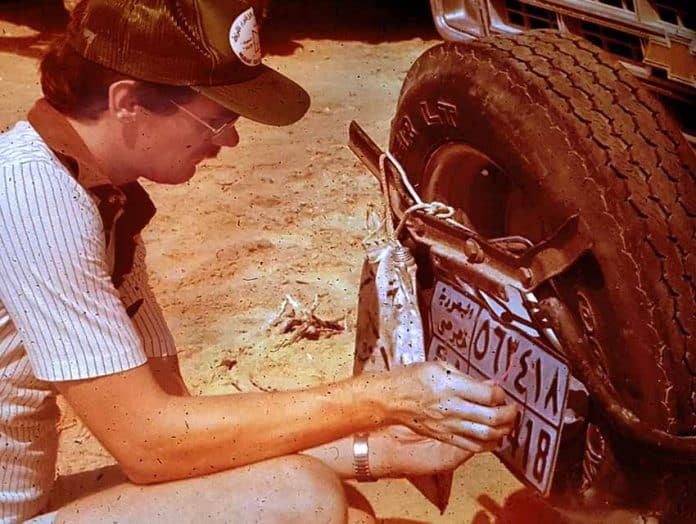Qatar, Qatar, Qatar! We see the word everywhere we look right now. But when we hear it spoken, it sounds like Cotter, Cutter, Gutter and, in Mexico, Catarrh.
These pronunciations are common, but not exactly authentic.
I’m not an Arabic speaker, but after living in Saudi Arabia for 13 years, I did learn how to pronounce a Q, the letter qāf.
That Q has to come from down low in the back of your throat where you make a g, but you have to turn the g into a sort of click. Just say, “got tar.” You start off with a guttural click, and you’ve got it — sort of.
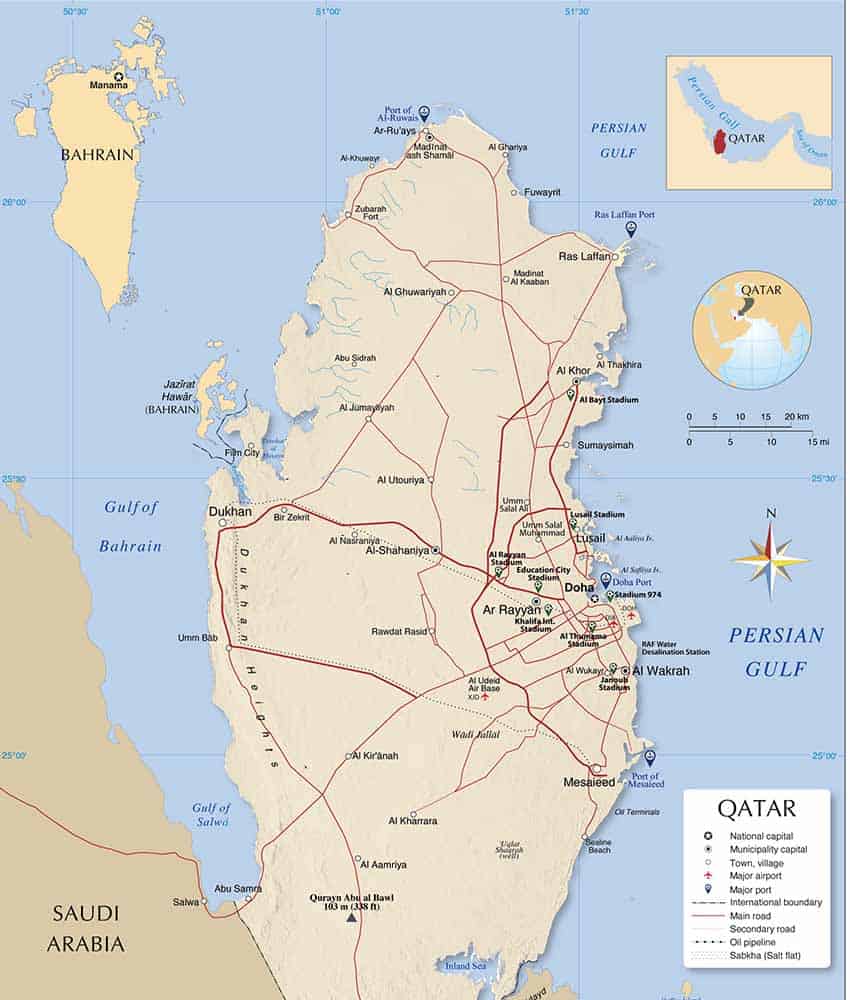
Now, let’s go back to the year 1983, when I was living in the Saudi Arabian city of Dhahran. If you think pronouncing Qatar correctly is difficult, good luck with Dhahran!
When my neighbor Kevin asked my advice on a good place for us to go camping, I said, “Let’s go to Qatar; I have no idea at all what we’ll find there.”
Kevin had a big camper, so we loaded it up with provisions and his two young boys, and off we began on a 290-kilometer journey to Dhahran. It was beastly hot, without a cloud in the sky, which was white rather than blue.
After three hours, the bleak, desolate landscape was broken by a small building behind a sign saying: “Exit Visa Inspection.”
There was a not-very-big window in front of the building, but we couldn’t see it because dozens of men were crowded around it, all of them attempting — at the same time — to push a handful of passports into the same small opening.
As the concept of queuing up did not exist in that part of the world in 1983, Kevin and I had to squeeze in among the sweating bodies and attempt to jam our passports into the same little window.
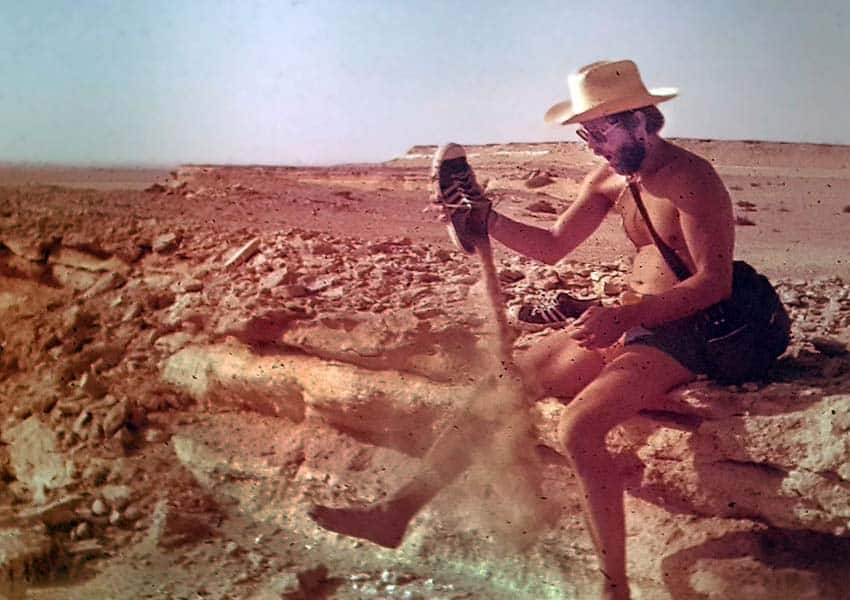
Several hours later — having received permission to exit the country — we proceeded up the road to the actual border with Qatar, which is a flat peninsula some 600 kilometers long.
A Saudi border guard approached us, and Kevin rolled down the window, allowing precious cool air to escape into the shimmering desert.
“Where you go?”
“Qatar.”
“Mushkila (problem). You leave Saudi Arabia, okay, but license plates no.”
We were tempted to ask “why?” but after years of living in the Middle East, we knew better.
“How can we drive in Qatar with no license plates?”
“You take chance. Maybe lucky.”
We got out of the vehicle and proceeded to remove the license plates. We handed them to the guard, who gave us a receipt and assured us that the plates would be securely locked up in a safe.
Then we rolled across the border into Qatar, where we found another desolate building with another tiny window where you had to stand out in the merciless sun waiting to get your passport stamped.
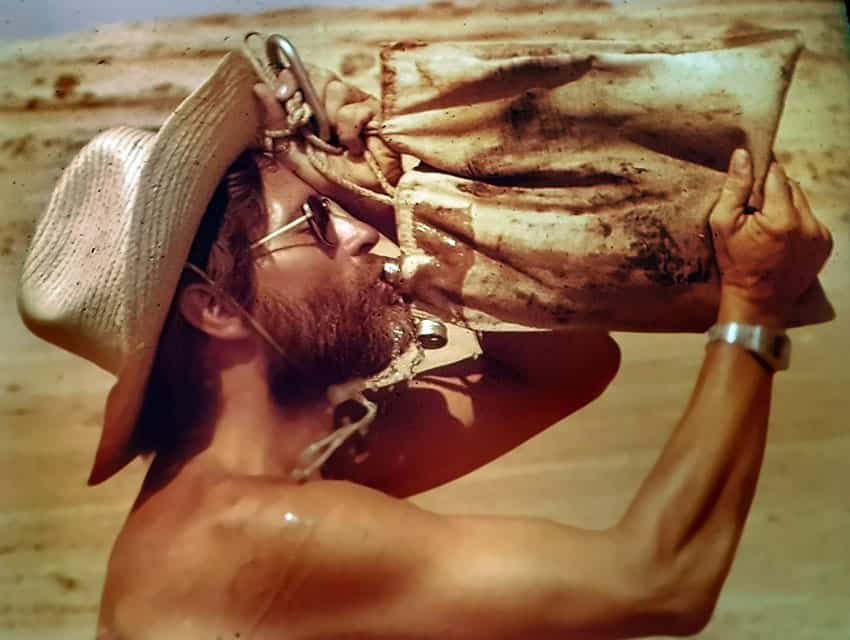
And then, at last, there we were inside Qatar — but there was nothing to see!
There was no town, no shops, no people… In every direction, the flat desert bled off into the distance — not a tree to be seen, just plenty of nada.
“Isn’t this fun, boys?” quipped Kevin to his utterly bored kids.
Sure that we would soon see a change in landscape, we drove on, but now each of us began to have second thoughts about driving without license plates.
“If they stop us, they might confiscate the camper,” said Kevin. “They might force us to apply for Qatari plates,” I contributed, “and that could take forever.”
“Why ever did they take our license plates away?” lamented the boys.
It was only after our return to Saudi Arabia that we got an answer to that question: the rumor mill revealed a bizarre story behind what, by then, I was calling “License Plate Lunacy.”
Saudi Arabia surely has the world’s strictest dry laws. You can’t even find rubbing alcohol in a pharmacy. This has motivated some Saudis to drive across the border to another country just to get a swallow of booze.
One day, a newspaper article appeared that focused on an alleged establishment of ill repute in one of the Emirates and a photo clearly showed that all the cars parked in front of the place had Saudi license plates! This caused a scandal, which the government resolved not by going after the offenders but by forbidding the export of Saudi license plates.
Kevin, his boys and I were among the victims of this curious law, and after mulling over the consequences of driving without license plates, we decided to cut short our not-so-delightful visit to Qatar and to return to Saudi Arabia.
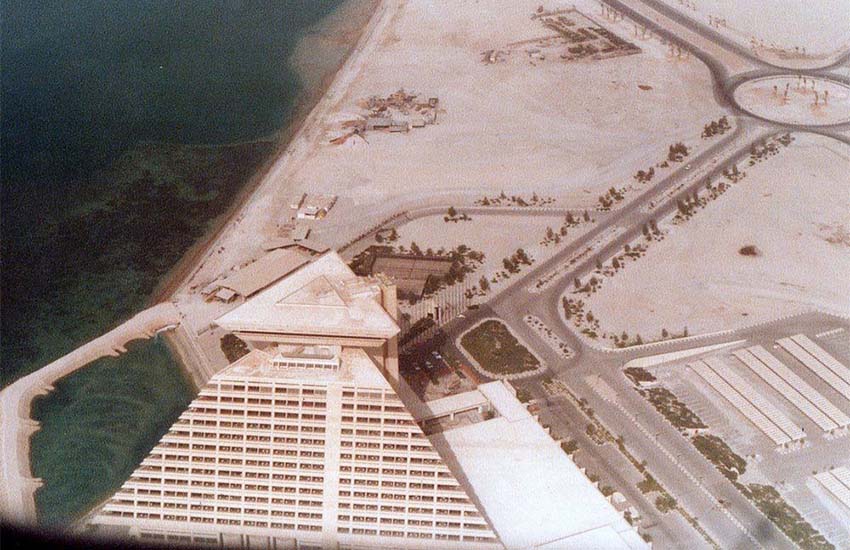
We went back to the border.
“Where have you been?” asked the guard.
“Qatar,” we replied. “What a place!”
The god smiled. “What you bring back?”
“Nothing.”
“We will see. Everything out!”
Fortunately, it was now getting dark as we removed every single item from the camper and placed all of it on the ground. Doing this in the scorching sun would have been murder.
This inspection took hours. But nothing haram (forbidden) — such as liquor-filled candies, brewer’s yeast, girly magazines, bibles or Christmas-tree ornaments — was found.
“Kwais (okay),” said the guard. “Yalla! (You can go).”
“But what about our license plates?” said Kevin, handing him the receipt.
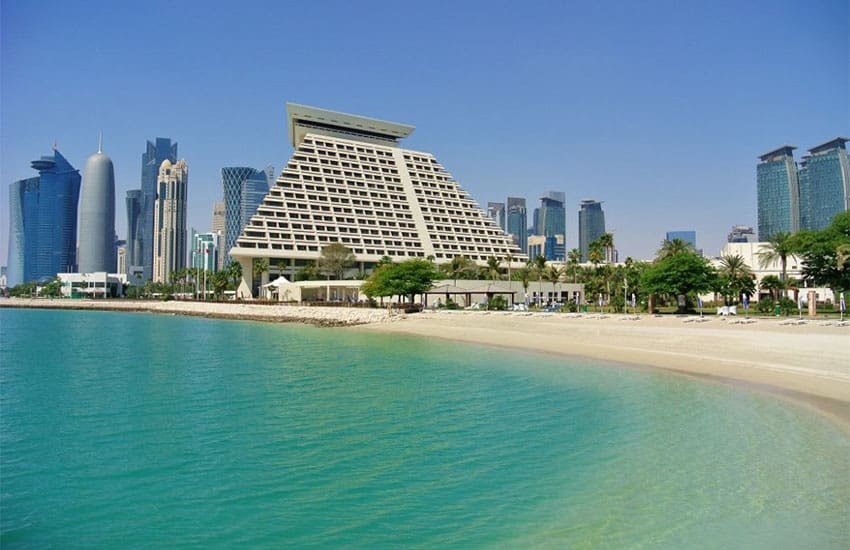
“Digiga (a minute),” said the guard.
An hour later, he came back. “License plates in safe. Safe locked.”
As time dragged by, we learned that the key to the safe was in the hands of someone named Abdullah — but where had he gone?
We attempted to sleep, but the heat and humidity were unbearable, even at 2 a.m.
At last, Abdullah turned up, and as the merciless sun rose in the sky, we proceeded back down the road to Dhahran… with impossible-to-forget memories of… (prepare that click in the back of your throat)… Qatar.
The writer has lived near Guadalajara, Jalisco, since 1985. His most recent book is Outdoors in Western Mexico, Volume Three. More of his writing can be found on his blog.
